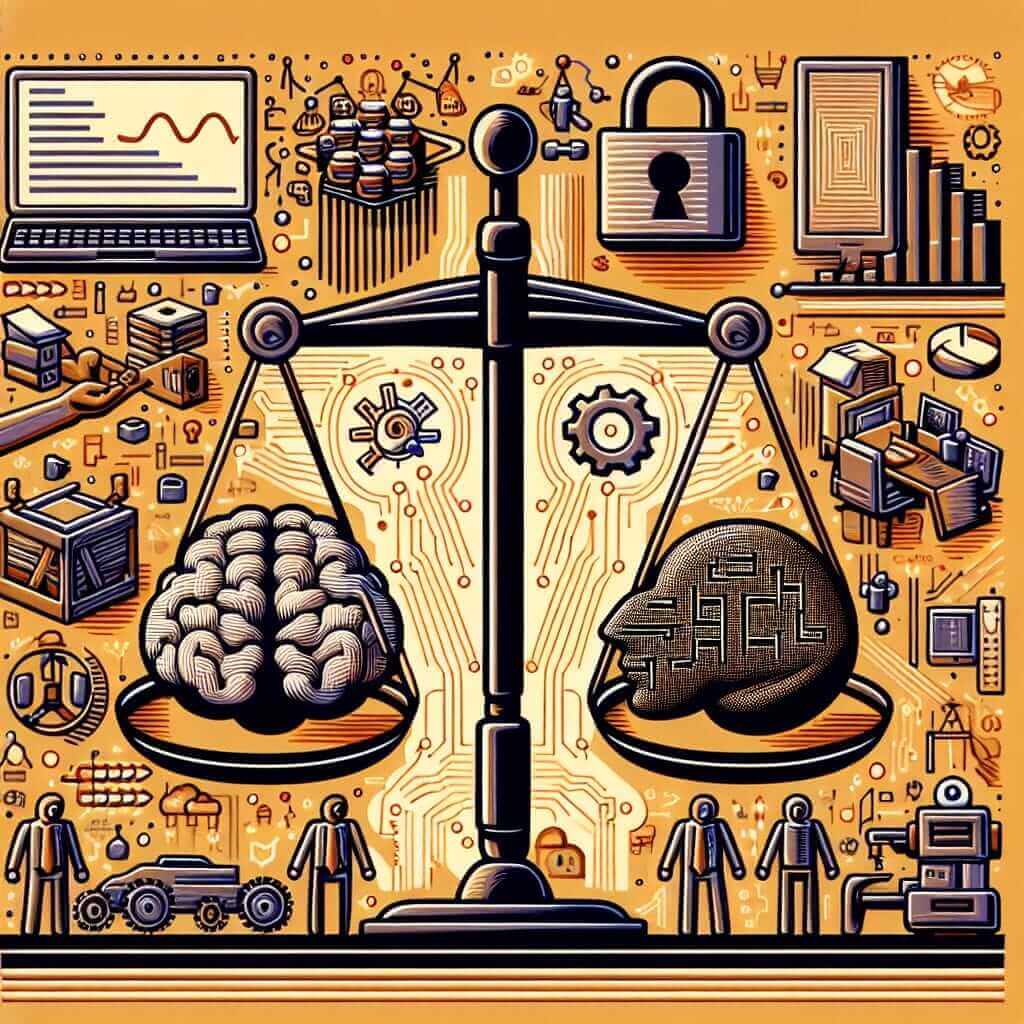The intersection of technology and ethics is a hotbed for discussion, and in the realm of IELTS Writing Task 2, “the importance of ethics in artificial intelligence development” emerges as a particularly relevant and thought-provoking theme. This topic delves into the complex considerations surrounding AI’s growing influence on our lives, prompting us to examine its ethical implications.
In this comprehensive guide, we will delve into this theme, equipping you with the necessary tools and insights to craft compelling IELTS essays.
Here are some potential essay questions related to this topic:
- To what extent do you agree that ethical considerations should be paramount in the development of artificial intelligence?
- Discuss the potential ethical dilemmas posed by advancements in AI and suggest ways to mitigate these challenges.
- Some argue that the benefits of AI outweigh any ethical concerns. Do you agree or disagree?
Crafting a High-Scoring Essay: A Sample Response
Let’s choose the first question and break down how to construct a well-structured and insightful essay:
Question: To what extent do you agree that ethical considerations should be paramount in the development of artificial intelligence?
Essay Analysis
This question requires you to present a clear stance on the significance of ethical considerations in AI development. You need to explore both sides of the argument – acknowledging the potential benefits of AI while emphasizing the critical need for ethical frameworks.
Model Essay
Artificial intelligence (AI), with its capacity to revolutionize countless industries, has become a defining technological advancement of our time. However, alongside its vast potential, AI presents profound ethical implications that necessitate careful consideration. I firmly believe that ethical considerations should be paramount in the development and deployment of AI systems.
Proponents of rapid AI advancement often highlight its potential to solve complex problems, improve efficiency, and drive innovation across sectors like healthcare, transportation, and finance. While these benefits are undeniable, they should not overshadow the potential risks associated with unchecked AI development. One pressing concern is the potential for AI algorithms to perpetuate and even amplify existing societal biases. If trained on biased data, AI systems can make unfair or discriminatory decisions, further marginalizing already vulnerable groups.

Furthermore, the increasing autonomy of AI systems raises questions about accountability and transparency. If an AI system makes a decision with significant consequences, it is crucial to have clear mechanisms for understanding how that decision was made and who is ultimately responsible. Without robust ethical guidelines and regulations, we risk creating a technological landscape where AI operates without sufficient oversight, potentially leading to unforeseen and harmful consequences.
Addressing these challenges requires a multi-faceted approach. Governments, research institutions, and tech companies must collaborate to establish clear ethical frameworks for AI development and deployment. These frameworks should prioritize transparency, fairness, and accountability, ensuring that AI systems are developed and used responsibly. Moreover, investing in public education and fostering open dialogues about the ethical dimensions of AI is crucial. By promoting greater understanding and awareness, we can empower individuals to engage critically with AI’s impact on society.
In conclusion, while the transformative potential of AI is undeniable, it is essential to proceed with caution and prioritize ethical considerations. By embedding ethical principles into every stage of AI development, we can harness its power for good while mitigating potential harms. Only through a commitment to responsible AI development can we ensure a future where this transformative technology benefits all of humanity.
Word count: 324 words
Writing Tips:
- Structure: Follow a clear essay structure (introduction, body paragraphs, conclusion) to present your arguments coherently.
- Vocabulary: Use a range of vocabulary related to technology, ethics, and societal impact (e.g., “algorithms,” “bias,” “accountability,” “transparency,” “frameworks,” “deployment”).
- Grammar and Syntax: Demonstrate control over complex grammatical structures and sentence variety.
- Examples: Support your claims with relevant examples to illustrate your points effectively.
- Critical Thinking: Present a balanced perspective by acknowledging both the potential benefits and risks of AI.
Vocabulary Builder:
- Paramount (adj.) /ˈpærəmaʊnt/: Of the greatest importance; supreme.
- Dilemma (n.) /dɪˈlɛmə/: A situation in which a difficult choice has to be made between two or more alternatives, especially equally undesirable ones.
- Mitigate (v.) /ˈmɪtɪɡeɪt/: Make (something bad) less severe, serious, or painful.
- Perpetuate (v.) /pərˈpɛtʃueɪt/: Make (something, typically an undesirable situation or an unfounded belief) continue indefinitely.
- Accountability (n.) /əˌkaʊntəˈbɪləti/: The fact or condition of being accountable; responsibility.
Conclusion: Mastering the Art of IELTS Writing
This guide has provided you with a framework for tackling IELTS Writing Task 2 essays on the importance of ethics in AI development. By understanding the nuances of the topic, structuring your essays effectively, and using precise vocabulary, you can confidently express your ideas and achieve a high band score. Remember, consistent practice and analysis are key to mastering the art of IELTS writing!